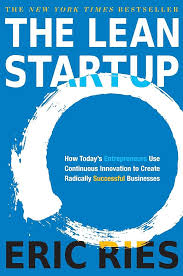What You Need to Learn to Start a Large IT & Engineering Business
Integrating Technical Expertise with Entrepreneurial Execution
Executive Summary
Launching a large-scale IT and engineering business demands more than technical know-how—it requires strategic foresight, business intelligence, leadership acumen, and the ability to navigate legal and operational complexities. This white paper outlines the essential knowledge areas, resources, and strategies for aspiring founders who aim to establish a scalable and sustainable technology or engineering enterprise. It also explores how IAS-Research.com and KeenComputer.com can provide expert support in accelerating this journey through research, digital infrastructure, and innovation partnerships.
1. Core Areas of Knowledge
1.1 Business Planning & Strategy
Building a successful enterprise begins with a robust plan:
- Business Plan Development: Define your niche, objectives, and go-to-market strategy.
- Market Research & Analysis: Understand industry trends, competitor positioning, and target audience needs.
- Strategic Frameworks: Apply models such as SWOT, Porter’s Five Forces, and Value Chain Analysis.
- Funding & Financials: Master cash flow forecasting, valuation, and funding pathways (VCs, grants, bootstrapping).
1.2 Legal & Organizational Foundations
Founders must set up their legal infrastructure early:
- Business structure selection (e.g., LLC vs. C-Corp)
- IP protection, software licensing, and NDAs
- Regulatory compliance (e.g., GDPR, ISO, CSA STAR for IT)
- Insurance, liability mitigation, and risk frameworks
1.3 Operations & Project Management
Operational excellence is critical for scaling:
- Agile, Scrum, Lean, and Kanban frameworks
- Systems thinking and DevOps for IT/engineering integration
- Tools: JIRA, Trello, MS Project, Docker, GitHub, and CI/CD pipelines
- Talent acquisition, onboarding, and team culture development
1.4 Sales, Marketing & Networking
Growth depends on visibility and credibility:
- Digital Marketing: SEO, content marketing, and PPC campaigns
- Sales Funnel Creation: Lead generation, CRM systems, and conversion optimization
- Partnerships: Alliances with industry bodies, academia, and service providers
- Events & Thought Leadership: Attend expos, speak at conferences, and publish white papers
1.5 Technology & Innovation
Keeping pace with change ensures relevance:
- Emerging Trends: AI, ML, blockchain, 5G, IoT, and cloud-native architecture
- Product Development Lifecycle: MVP → Product-Market Fit → Scaling
- Software Engineering Best Practices: Clean code, unit testing, security-first design
- Hardware-Software Integration: Embedded systems, FPGA, and simulation tools
2. Must-Read Books for Founders
|
Title |
Author(s) |
Key Focus |
|---|---|---|
|
The Lean Startup |
Eric Ries |
Iterative development, hypothesis testing |
|
Crossing the Chasm |
Geoffrey Moore |
Tech product adoption strategy |
|
The Innovator’s Dilemma |
Clayton Christensen |
Navigating disruption |
|
The Hard Thing About Hard Things |
Ben Horowitz |
Crisis leadership |
|
Disciplined Entrepreneurship |
Bill Aulet |
Step-by-step startup framework |
|
Measure What Matters |
John Doerr |
OKRs and scaling execution |
|
Profit First |
Mike Michalowicz |
Entrepreneurial financial planning |
|
The E-Myth Revisited |
Michael Gerber |
Building scalable systems |
3. Essential Articles and Industry Guides
|
Resource |
Summary |
|---|---|
|
MassChallenge 7-Step Guide to Start a Tech Company |
Covers MVP, agile teams, investor relations |
|
Apollo Technical: Grow an Engineering Firm |
Legal and infrastructure setup for engineers |
|
BDC & FedDev Ontario Resources |
Canadian-specific business guides, grant programs |
|
Stripe for Founders |
Fintech-friendly startup playbook |
|
NASA SE Handbook |
Systems engineering best practices for complex projects |
4. Role of IAS-Research.com and KeenComputer.com
4.1 IAS-Research.com
IAS Research empowers startups and enterprises with:
- Systems Engineering Consulting: Guidance on complex product development (e.g., embedded systems, automation, HVDC).
- AI/ML and R&D: Expertise in building cutting-edge solutions powered by data science, robotics, and intelligent systems.
- Academic-Industry Interface: Research-driven innovation, white paper development, and grant applications.
4.2 KeenComputer.com
Keen Computer accelerates your operational and digital readiness through:
- Digital Infrastructure: Website development, eCommerce (Magento, Joomla, WordPress), cloud hosting, and cybersecurity solutions.
- IT Project Delivery: End-to-end project management for ERP, CRM, and enterprise-grade systems.
- SME Empowerment: Helps small-to-medium enterprises adopt digital technologies cost-effectively.
Use Case Example:
An aspiring engineering firm can work with KeenComputer.com for developing its online presence, client portals, and SEO marketing while IAS-Research.com helps them design and simulate their product architecture using MATLAB, Ngspice, or Scikit-learn for AI models.
5. Pro Tips for Success
- Invest in Soft Skills: Learn negotiation, communication, and emotional intelligence.
- Practice Continuous Discovery: Test assumptions through customer interviews and rapid prototyping.
- Build Resilience: Stay committed to vision while iterating on tactics.
- Use Canadian Resources: Leverage SR&ED tax credits, NRC IRAP grants, and university partnerships for R&D.
6. Conclusion
Building a large-scale IT and engineering business is an ambitious yet achievable goal. With the right mix of strategic planning, technical leadership, and continuous learning, entrepreneurs can shape future-ready companies that innovate and scale globally. Organizations like IAS-Research.com and KeenComputer.com stand ready to support you across your journey—from infrastructure to innovation.



